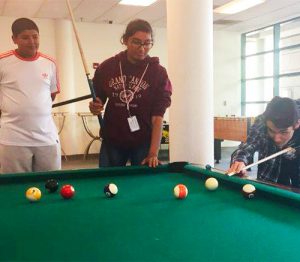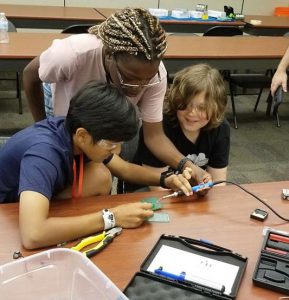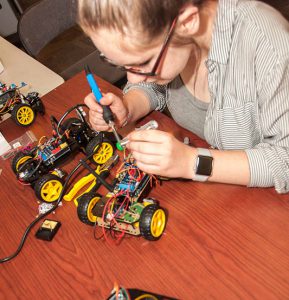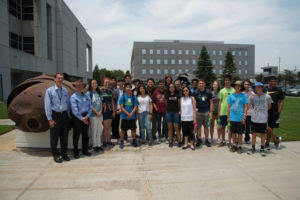What is Mechanical Engineering?
Mechanical engineering is the most varied, oldest, and broadest of all the engineering domains. It is correlated with the application of nature's fundamental principles and laws for the transition and advancement of technological culture and society. Almost everything that moves, whether inanimate or animate, is incorporated within the extent of mechanical engineering.
Concerned with applying physics and mathematical principles to design, analyze, build, and maintain systems, mechanical engineering is the broadest and most diverse of the engineering disciplines.

What Are the Branches of Mechanical Engineering?
Below are the subfields of mechanical engineering, each dealing with a unique aspect.
1: Power Plant Engineering
Each operation requires energy and power. The power and energy are engendered in power plants. Power plants can be diverse in their manners of production, for instance, nuclear power plants, hydropower plants, thermal power plants, etc. This category of mechanical engineering primarily wields the standards of thermodynamics. The utilization of equipment like alternators and boilers is apparent.
- Automotive Engineering
This consummate branch of mechanical engineering is associated with vehicles used on roads instead of the sea or the air. There are various subbranches of it as well that incorporate safety engineering, design engineering, and the list goes on. Automotive engineers take care of the meticulous characteristics of automotive when it is premeditated, manufactured, and maintained.
- Computer-Aided Engineering CAE
The term CAE (Computer-Aided Engineering) is often used with CAD (Computer-Aided Design). It pertains to the use of computers and applicable software to execute the designs and stimulation of different procedures and machines. CAE is used in various disciplines such as naval architecture, automobile design, computer simulations, ect.
- HVAC Engineering
HVAC is short for Heating, Ventilation & Air-Conditioning. It works with principles of thermodynamics, fluid transfer, and many other aspects. Even though weather conditions and climate are natural happenings, we can at least manage the elements within finite space. These all dynamics comprise the basis of HVAC engineering.
- Aerospace Engineering
Unlike automotive engineering, which deals with vehicles on the road, aerospace engineering is all about flying machines. It is further subdivided into two categories; aeronautical engineering and astronautical engineering. Both sub-branches deal with spacecraft and airplanes.
- Nautical Engineering
This discipline of mechanical engineering pacts with the performance and continuance of propulsion. It also includes other machinery onboard ships. The ship may have many forms of machinery like pumps, boilers, main propulsion plants, purifiers, and auxiliary generators.
- Mechatronics
It is a renewed expansion of mechanical engineering. Mechatronics is a mixture of computer, electronic, and mechanical engineering. It can be called a hybrid brand incorporating quite a lot of fields simultaneously.
How is Mechanical Engineering Different from other Disciplines?
Unlike fields like computer science that delve into the digital realm, mechanical engineering focuses on the tangible world of physical machines and systems. Their expertise lies in understanding how forces move objects, how energy transforms, and how different materials behave. This knowledge empowers them to design, analyze, build, and maintain everything from simple tools to intricate machinery.
Their skillset finds application across a wide range of industries, from designing cars and airplanes in the transportation sector to building and maintaining production lines in manufacturing. Robotics, energy, and consumer goods all benefit from the ingenuity of mechanical engineers, who create robots for diverse tasks, design sustainable energy solutions, and develop the appliances and products we use daily.
What Do Mechanical Engineers Do?
Mechanical engineers are generally involved with the creation, dispersion, and utilization of energy. They have a major responsibility in the organization such as; computerization of the manufacturing system, the resolutions to environmental troubles, the dispensation of resources, and the devise and progress of machines.
The essential activities attributed to dynamic mechanical engineers are operations, administration, testing, research, marketing, and mechanics of machines and devices. They differ from others because of their creativeness, the extent of proficiency, and adaptability. They also serve as responsible multidisciplinary group members that make efforts to budding a wide array of systems and products: for instance, aircraft of all magnitudes and shapes, turbines, power plants, space shuttle vehicles, and factories. In short, nearly any procedure or machine one can imagine benefits from the significance of a mechanical engineer.
What Skills Do You Need to Have?
Mechanical engineers require both soft and engineering skills. When these skills are more diverse in their aptitudes, the more likely they are to get hired.
The engineering skills mechanical engineers should possess are service orientation, programming, fault detection, system evaluation, operation monitoring, complex problem solving, engineering design, operation analysis, and system analysis. They should also have a profound knowledge of science, mathematics, physics, and chemistry.
Soft Skills which are considered a plus point for mechanical engineers are: leadership, critical thinking, coordination, time management, communication, negotiation, teamwork, decision making, judgment, and active listening.

What are Some Available Careers?
Mechanical engineering, due to its versatile nature, offers a diverse range of career paths. Here are some prominent examples:
- Design Engineers: Develop and refine new products, from medical devices to automotive components, using their technical expertise and CAD software.
- Manufacturing Engineers: Oversee production processes, ensuring efficiency, quality control, and adherence to safety regulations in manufacturing facilities.
- Mechatronics Engineers: Combine mechanical, electrical, and computer engineering principles to design and build automated systems like robots and control systems.
- Thermal/Fluid Engineers: Analyze and design systems involving heat transfer and fluid mechanics, critical for applications in power generation, heating/cooling systems, and aerospace engineering.
- Biomedical Engineers: Apply engineering principles to solve problems in the medical field, designing prosthetics, medical equipment, and even artificial tissues.

How Much Do They Earn?
Amid many career selections, an engineering degree is indeed worth it. On standard, engineers earn the uppermost preliminary salaries. According to the BLS (the U.S. Bureau of Labor Statistics), the median annual earnings of engineers is $91,010, and the employment increase in the engineering field projects is anticipated to be 140,000 fresh jobs by the subsequent decade.
According to the U.S. News and World Report, in 2020, mechanical engineers received a median income of $90,160. The highest-paid 25 percent made $114,380 the same year. On the other hand, the least-paid 25 percent earned $71,880.
Is Mechanical Engineering Right for You?
Do you enjoy building things, tinkering with machines, and understanding how things work? If so, mechanical engineering could be a great fit, allowing you to turn your curiosity and passion into a rewarding career. Solid math and science skills are essential for success in this field. Focus on courses like physics, calculus, chemistry, and computer-aided design (CAD) to build a strong foundation for your engineering studies.
Technology and engineering fields evolve rapidly. Be prepared to continuously upgrade your skills by staying updated on the latest advancements and software. Consider pursuing professional certifications or taking additional courses relevant to your area of interest.
How to Become a Mechanical Engineer?
Generally, one will require a bachelor's degree in mechanical engineering technology or merely in mechanical engineering. A mechanical engineering program incorporates courses in mathematics, engineering and design, and life and physics sciences. The prominent emphasis of these courses is on the practical application of engineering instead of on theory. There are internships and co-ops to make students ready for work in the industry.
Some universities offer 5-year courses that entitle students to attain both bachelor's and master's degrees. There are some 6-year programs as well in which classroom study is combined with practical work. Such programs allow students to acquire practical experience and earn income to fund part of their education. Mechanical engineering is undoubtedly a good field with diverse career options. Moreover, it is a well-paid and dignified profession
Mechanical Engineering Links and Resources
- American Society of Mechanical Engineers: a non-profit membership organization that enables collaboration, knowledge sharing, career enrichment, and skills development across all engineering disciplines.
- American Society of Heating, Refrigerating, and Air-Conditioning Engineers: focuses on building systems, energy efficiency, indoor air quality, refrigeration, and sustainability.
- Society for Experimental Mechanics: members are committed to interdisciplinary engineering application, research and development, education, and active promotion of experimental methods.
- Association of Energy Engineers: promotes the scientific and educational interests of those engaged in the energy industry and fosters action for sustainable development.
- Society of Automotive Engineers: a global association of more than 138,000 engineers and related technical experts in the aerospace, automotive, and commercial-vehicle industries.
Interested in other Sections of Engineering?
We have more information on other sections of engineering if you are interested. You can check out our content below and learn more about each section of engineering, their different branches, and how to become a engineer one day!
At the TryEngineering Summer Institute summer engineering programs for high school students, you’ll explore various engineering fields, such as electrical, civil, mechanical, and aerospace. Our STEM summer course allows you to meet working engineers and experience VIP tours of engineering companies and centers. Learn new skills and engage in hands-on projects that explore how engineers can solve real-world problems.
The TryEngineering Summer Institute is a program from IEEE, the world’s largest professional association for the advancement of technology. Our more than 417,000 members in 160 countries, including more than 120,000 student members, help us provide the trusted "voice" for engineering, computing and technology information around the globe via highly-cited publications, conferences, technology standards and professional and educational activities. Our curriculum is created specifically for this program by IEEE STEM summer specialists.
Last summer we visited:
- NASA's Johnson Space Center (Rice University students)
"If you are ever thinking about doing engineering or trying to see what it's like, I would 100% recommend this camp." - 2023 student

Click above to watch our video: All About the TryEngineering Summer Institute
Our Engineering Program
The TryEngineering 2024 engineering summer camp gives teens the opportunity to explore a variety of engineering disciplines in a fun, hands-on way. The program is ideal for students who are considering a degree or career in engineering, as well as for those that are curious to learn more. Whether your teen is brand new to engineering, or has taken a few classes in school, every student will have fun tackling a variety of engineering design challenges while developing skills in engineering, communication, and consensus-building. The program is designed by IEEE STEM summer specialists includes various sections like our mechanical engineering module, civil engineering module, and our electrical engineering module. All of these are specifically for our TryEngineering Summer Institute. Not only will students learn more about Mechanical Engineering but they will also learn about other popular engineering field such as electrical engineering and civil engineering. Has your teenager ever wanted to go to aerospace camp well our aerospace engineering projects is a great start to engaging their interest in the stars.
Students participate in team-based, hands-on design challenges, hear from and interact with working engineers, and experience exciting off-campus field trips to local engineering sites.
The program is perfect for those who want to:
- Find out how engineering is applied in the real world, and how it’s shaping our future.
- Participate in multi-disciplinary projects in electrical, civil, mechanical, aerospace and other engineering disciplines.
- Learn to think like engineers while building critical thinking, communication and collaboration skills.
- Experience how engineers work in teams to solve local and global challenges.
- Gain insight into what it’s like to study engineering at the university level.
- Engage with professionals working in your field of interest.
- See real-world engineering projects while learning about future academic and career possibilities through exciting trips and tours.
- Build awesome projects that teach engineering concepts by making things like rockets, remote control cars, drones, trebuchets, building and soldering circuits, and much more.
…All while having fun with new friends on one of our engineering campuses.
Curriculum Overview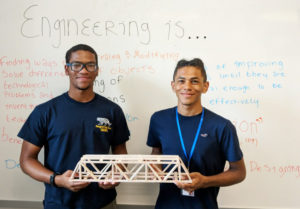
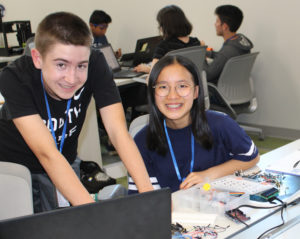
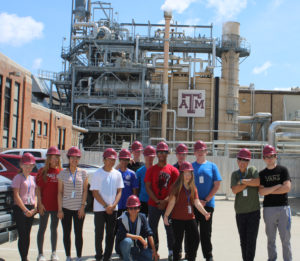
Questions about our programs?
Call us at +1 315-816-4023 or email info@tryengineeringinstitute.org
Program Highlights

Hands-On Design Challenges

Exclusive Guest Speakers
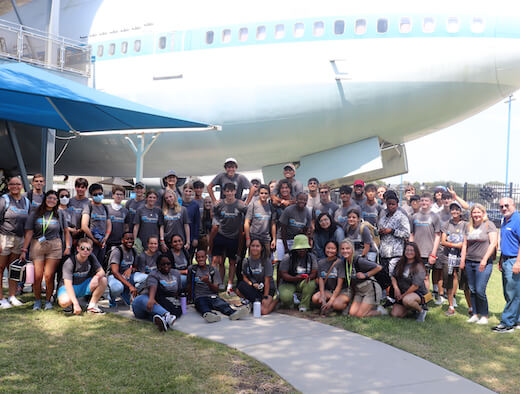
Exciting VIP Tours
and Field Trips
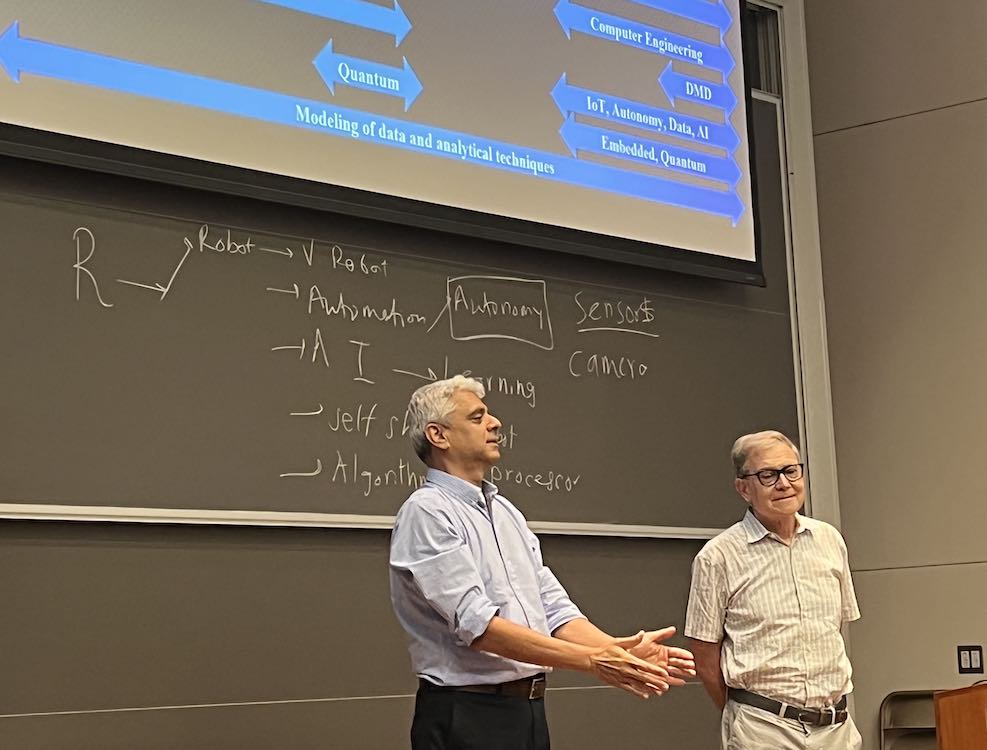
Access University Engineering Labs and Tech Spaces
Scholarships
A limited number of scholarships are available for those that demonstrate financial need. Click the link below to learn how to apply.
Locations
Philadelphia, PA
Session 1: July 14, 2024 - July 22, 2024
Session 2: July 25, 2024 - August 2, 2024
Houston, Texas
Session 1: June 30, 2024 - July 8, 2024
Session 2: July 11, 2024 - July 19, 2024
San Diego, California
Session 1: June 30, 2024 - July 8, 2024
Session 2: July 11, 2024 - July 19, 2024






 With nonstop sunshine and the beaches, strands, shopping and more just a stone’s throw from campus, our USD TESI students will really have a wonderful summer. With such beautiful surroundings, we get the chance to explore and maybe even find the legendary fish taco truck!
With nonstop sunshine and the beaches, strands, shopping and more just a stone’s throw from campus, our USD TESI students will really have a wonderful summer. With such beautiful surroundings, we get the chance to explore and maybe even find the legendary fish taco truck! The University of Pennsylvania is a fabulous, safe urban campus located in the heart of Philadelphia. This allows us easy access to many of the local sights, sounds and flavors available to us!
The University of Pennsylvania is a fabulous, safe urban campus located in the heart of Philadelphia. This allows us easy access to many of the local sights, sounds and flavors available to us! The entrance is staffed by Penn Security 24/7. Inside is our air-conditioned wonderland, packed with the same fabulous amenities the Penn students enjoy. We also have our own outdoor area, inside the secure walls, where we have patio seating, tables, a grassy area, and more. It is quite lovely.
The entrance is staffed by Penn Security 24/7. Inside is our air-conditioned wonderland, packed with the same fabulous amenities the Penn students enjoy. We also have our own outdoor area, inside the secure walls, where we have patio seating, tables, a grassy area, and more. It is quite lovely.




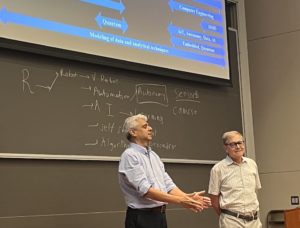 Past students have had the opportunity to discover on-campus engineering tools, equipment and technology that will be available to them as future engineering students. In previous summers we have toured the engineering departments at our host venues to meet and greet and see what are the latest aspects and cutting edge work that is being done.
Past students have had the opportunity to discover on-campus engineering tools, equipment and technology that will be available to them as future engineering students. In previous summers we have toured the engineering departments at our host venues to meet and greet and see what are the latest aspects and cutting edge work that is being done.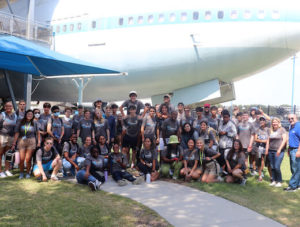 Get a peek at the inner workings of top engineering companies and centers and discover the world inside your dream career! In previous years, our students:
Get a peek at the inner workings of top engineering companies and centers and discover the world inside your dream career! In previous years, our students: Students will gain valuable knowledge from engineering professionals on how to succeed in college and in an engineering career.
Students will gain valuable knowledge from engineering professionals on how to succeed in college and in an engineering career. TryEngineering Summer Institute students explore engineering design challenges through hands-on teamwork. Previous students participated in projects such as:
TryEngineering Summer Institute students explore engineering design challenges through hands-on teamwork. Previous students participated in projects such as:



